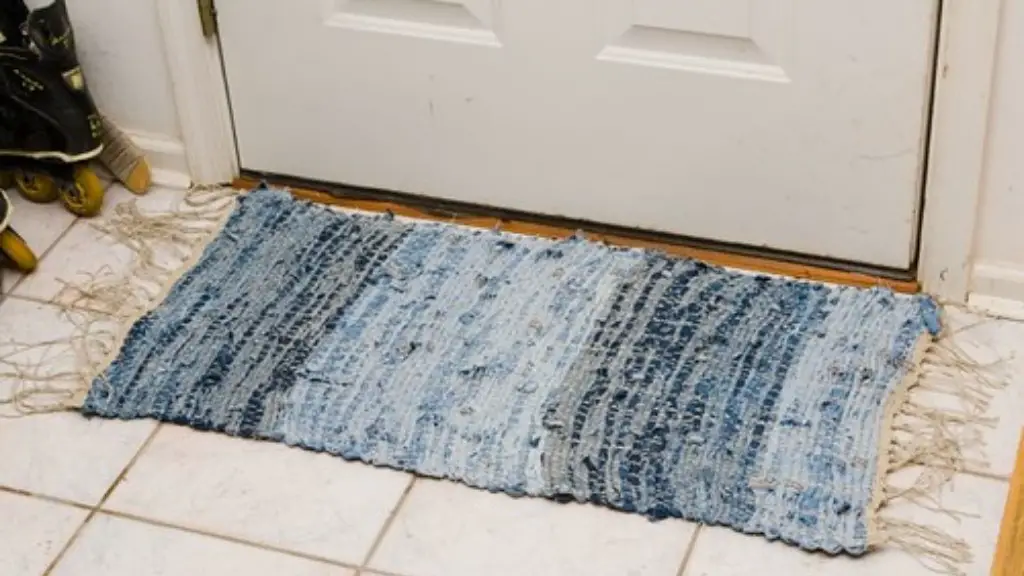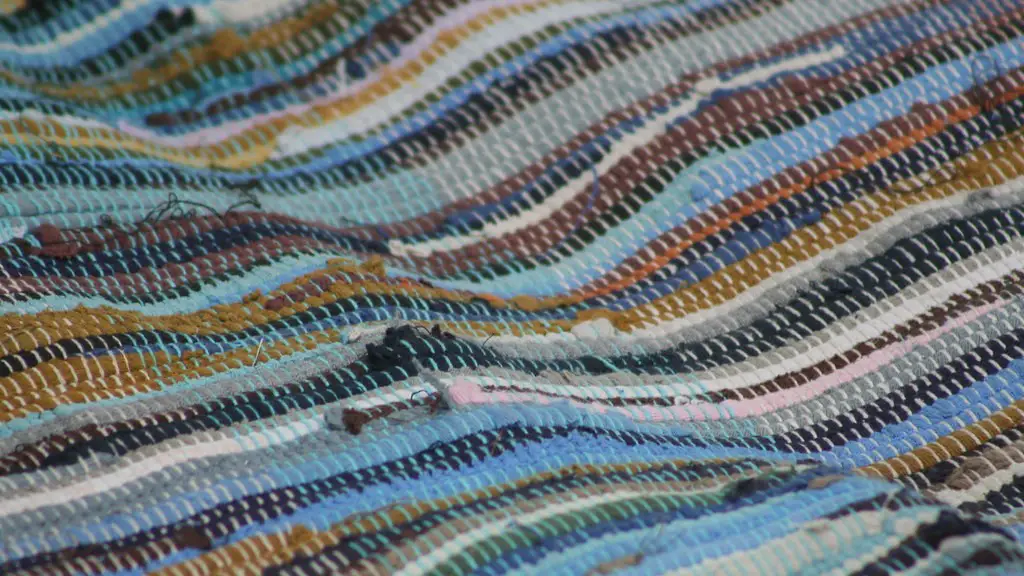Depending on the type of carpet you have and the pad underneath, you may be able to remove water from your carpet in the basement by using a vacuum with a wet/dry attachment. Start by vacuuming up as much water as possible, then use a dehumidifier and/or fans to help dry out the area. If you can’t get the carpet completely dry, you may need to remove it and discard it.
If your basement has flooding or water damage, you’ll need to remove the water from your carpet as soon as possible. To do this, you’ll need to rent or purchase a wet/dry vacuum. Once you have the vacuum, follow these steps:
1. If possible, move any furniture or other items out of the way so that you can access the entire carpet.
2. Put on any safety gear that you’ll need, such as gloves, a mask, and/or eye protection.
3. Begin vacuum the water from the carpet, working in sections.
4. If the vacuum becomes full of water, empty it and continue vacuuming until the carpet is completely dry.
5. Once the carpet is dry, you can use a fans or dehumidifiers to help speed up the drying process.
Can wet basement carpet be saved?
If your carpet has been soaked with clean water and you can dry it within 48 hours, you may be able to clean and reinstall it. However, if it has been longer than 48 hours, the EPA, FEMA, and CDC recommend removing and replacing the carpet.
Mildew (mold in early stage) and molds grow on wood products, ceiling tiles, cardboard, wallpaper, carpets, drywall, fabric, plants, foods, insulation, decaying leaves and other organic materials. Mold growths, or colonies, can start to grow on a damp surface within 24 to 48 hours.
What draws water out of carpet
If your carpet is wet and smells bad, sprinkle baking soda on it and let it sit. The baking soda will absorb the moisture and the bad smell.
If you’re trying to dry out a wet carpet, don’t waste your time with a wet/dry shop vacuum. Instead, rent an extractor or carpet cleaner, an air mover fan or two, and a large commercial dehumidifier. Rent the largest dehumidifier available to get the job done quickly and efficiently.
Is it OK to let water dry on carpet?
If you have any water on your carpet, be sure to clean it up as soon as possible. Mold can grow quickly, and even a small amount of water can damage the pad and subfloor.
If you’re looking to remove mold and mildew from your carpet, one home remedy you can try is a vinegar and baking soda mixture. This might kill some mold, and it will help remove musty odors from the carpet. To make the mixture, simply combine equal parts vinegar and baking soda. Then, apply it to the affected areas of your carpet and scrub it in with a brush. Let it sit for an hour or so before vacuuming it up.
What kills mold in carpet?
Mold and mildew can be a huge problem in your home, especially in carpeted areas. There are a few different ways that you can kill mold and mildew, and each has its own set of benefits and drawbacks.
One popular method is to mix together baking soda and vinegar, and then use this mixture to scrub away at the affected areas. This can be effective, but it’s important to be careful not to damage your carpet in the process.
Another option is to use a steam cleaner on the affected areas. This can be effective, but it’s important to make sure that the steam cleaner’s temperature is set properly, or you could end up damaging your carpet.
You can also use an anti-fungal treatment on your carpet. This can be effective, but it’s important to make sure that you follow the directions carefully, or you could end up damaging your carpet.
If you’re really serious about getting rid of mold and mildew in your carpet, you may want to consider hiring a professional carpet cleaner. This is usually the most expensive option, but it’s also the most effective.
Mold growth is a very serious problem and should be addressed immediately. If you see any green, white, or black spots on or under your carpeting, this indicates an advanced mold problem. At this stage, even the best carpet cleaner may not be able to salvage your carpet. You should contact a professional mold remediation company to come and assess the situation.
What happens if water stays in carpet
If your carpet or padding gets wet, it’s important to dry it out as soon as possible to prevent mold growth. Mold loves dark, humid environments, and wet carpet provides the perfect environment for it to multiply. Mold can be a major health risk, so it’s important to take action quickly if you think your carpet may be at risk.
A dehumidifier is the best way to dry a wet carpet after water damage. If a large area of the home is carpeted, it is especially important to use a dehumidifier to prevent lasting damage from the flood waters. Seal off the room and turn on the dehumidifier.
Will wet carpet smell go away?
Wet carpet smell can be a nuisance, but there are ways to get rid of it. Bleach and baking soda can temporarily help, but to really get rid of the smell, you need professional equipment or to replace the carpet entirely.
Flooded carpets usually take about three to five days to dry out completely, while partially wet carpets may take 12 to 24 hours to dry. The type of carpeting you have will affect how long it takes to dry – woolen carpets will take longer to dry than synthetics, Berber, and other types of carpets.
How long does it take for a flooded basement to dry out
If you have a wet basement, you should use fans and a dehumidifier to dry it out. It can take up to six weeks to completely dry your basement floor, so wait before having your floor sanded or refinished. If your floor still seems wet, contact a professional.
Yes, so long as the water that leaked onto the carpet isn’t from a contaminated source, such as your sewer or washing machine. The key is getting the carpet dry as fast as possible to prevent mold and mildew from ruining your current carpet.
Does baking soda absorb water from carpet?
Baking soda is an effective way to remove moisture and deodorize your carpet. Simply sprinkle it over the carpet and allow it to sit for at least 30 minutes.
A carpet will usually take 3 to 6 hours to dry completely when left on its own. This is because the moisture penetrates deep into the carpet’s fabric to loosen up the dirt and contaminants. Although the water is then extracted up to 95%, the carpet remains a little bit wet.
Should I use heat to dry wet carpet
Adding heat to the equation will help to dry out your carpets if they are wet from cold weather. By quickly ventilating and heating the air, you can help to evaporate any moisture that has settled into the fabric of your carpeting. This is a good idea if you are expecting company and want to make sure that your carpets are presentable.
Carpeting can take several days to dry out completely, depending on the size and extent of the flooding. Dehumidification and water extraction equipment can speed up the process by removing the moisture in the carpet. This equipment can usually be rented from hardware stores or home improvement centers. After the carpet is dried, it can be cleaned by thoroughly vacuuming the carpet to remove the mold spores and bacteria.
Conclusion
If you have a wet spot in your carpet from a spills or leak, you can remove the water from your carpet with a wet/dry vacuum. If you don’t have a wet/dry vacuum, you can rent one from a hardware store.
The best way to remove water from a carpet in a basement is to use a wet/dry vacuum. If you do not have a wet/dry vacuum, you can use a regular vacuum with the hose attachment. First, you will want to remove as much water as possible by blotting with a towel. Next, you will want to vacuum the area to remove any remaining water and to help dry out the carpet. Finally, you will want to place a fan in the area to help speed up the drying process.





